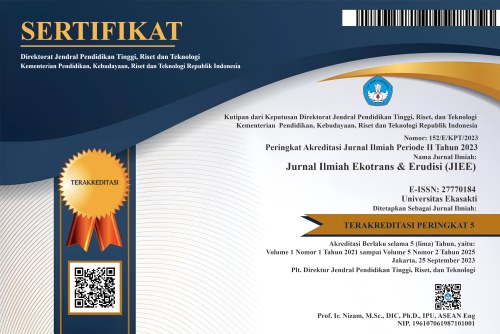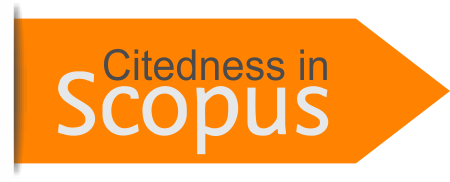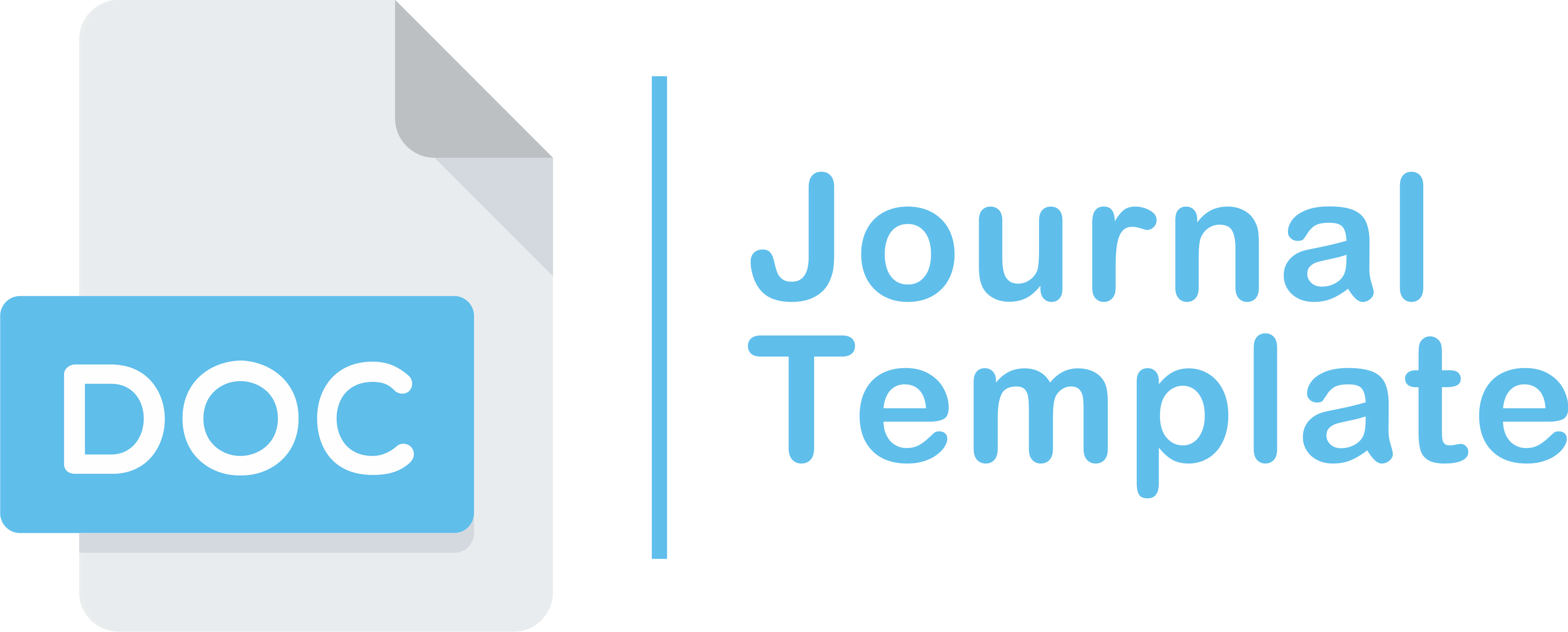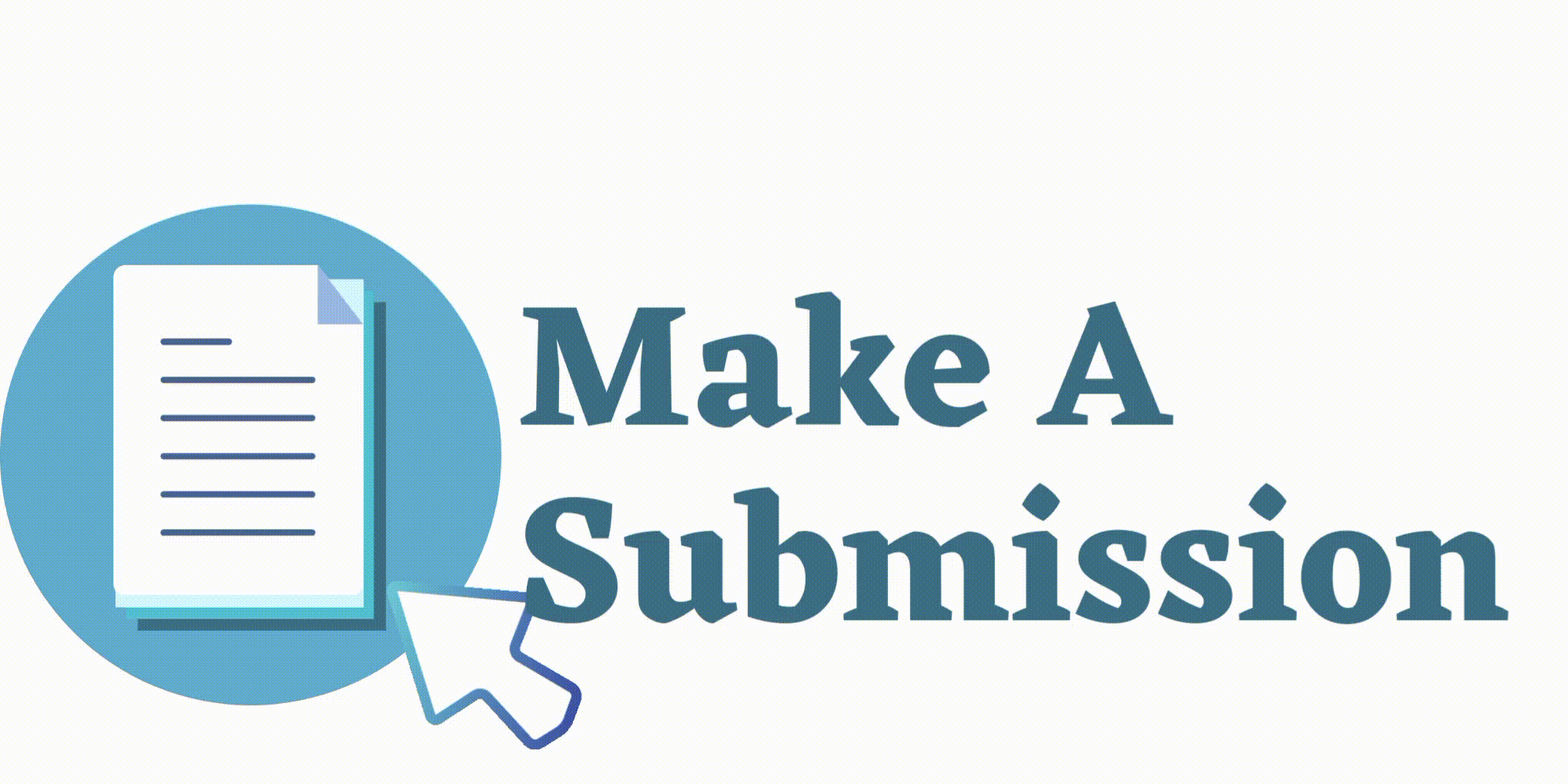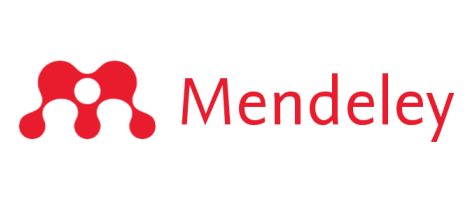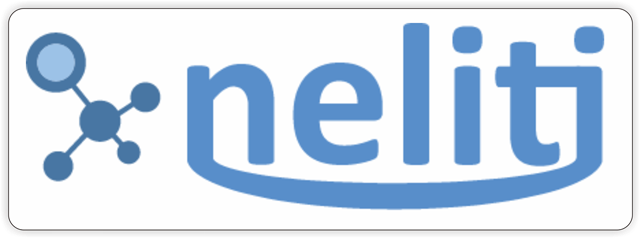A Literature Review on the Impact of Legal Reforms on Administrative Efficiency in Local Governments
DOI:
https://doi.org/10.69989/xavgc910Keywords:
Legal Reform, Administrative Efficiency, Local Government , Literature ReviewAbstract
This research paper offers an extensive literature review concerning the effects of legal alterations on the operational efficiency of municipal administrations. Despite implementing numerous legislative modifications to improve administrative efficacy, many local governing bodies encounter obstacles such as bureaucratic procedures, corruption, and insufficient institutional capabilities. Successful instances in nations like South Korea and Singapore underscore the significance of digitalization within public administration and unwavering political dedication in overcoming these hindrances and bolstering transparency. Conversely, in regions such as India and various African countries, obstacles like institutional shortcomings and widespread corruption hinder the effectiveness of reform initiatives. Critical elements for the success of such reforms encompass institutional capacity, political backing, and the integration of information and communication technologies. Public involvement and the effective management of bureaucratic opposition are also paramount. This analysis furnishes valuable insights for policymakers and scholars aiming to devise and execute more effective legal reforms. Policy recommendations entail continual training for governmental officials, persistent political dedication, and customized strategies tailored to local reform implementation obstacles.
Downloads
References
Abadi, D., Willem van Prooijen, J., Krouwel, A., & Fischer, A. H. (2024). Anti-establishment sentiments: realistic and symbolic threat appraisals predict populist attitudes and conspiracy mentality. Cognition and Emotion, 1–15.
Akorli, C. D., & Adom, P. K. (2023). The role of corruption control and regulatory quality in energy efficiency transition tendencies in Africa. Iscience, 26(3).
Andrews, R., & Boyne, G. (2012). Structural change and public service performance: The impact of the reorganization process in English local government. Public Administration, 90(2), 297–312.
Askim, J., Christensen, T., Fimreite, A. L., & Laegreid, P. (2010). How to assess administrative reform? Investigating the adoption and preliminary impacts of the Norwegian welfare administration reform. Public Administration, 88(1), 232–246.
Bauer, M. W. (2012). Tolerant, If Personal Goals Remain Unharmed: Explaining Supranational Bureaucrats’ Attitudes to Organizational Change. Governance, 25(3), 485–510.
Bell, E., Christensen, J., & Jessen Hansen, K. (2022). Resistance or capitulation? How discrete emotions shape citizens’ interactions with the administrative state. The American Review of Public Administration, 52(8), 535–557.
Boon, J., & Verhoest, K. (2018). On the dynamics of reform resistance: Why and how bureaucratic organizations resist shared service center reforms. International Public Management Journal, 21(4), 533–557.
Boothroyd, R. I., Flint, A. Y., Lapiz, A. M., Lyons, S., Jarboe, K. L., & Aldridge, W. A. (2017). Active involved community partnerships: co-creating implementation infrastructure for getting to and sustaining social impact. Translational Behavioral Medicine, 7(3), 467–477.
Brown, D. K. (2014). The perverse effects of efficiency in criminal process. Va. L. Rev., 100, 183.
Callais, J., & Lawson, K. (2024). Underperforming reformers: Examining disappointing cases of economic reforms. Kyklos.
Chiang, L., Tai, K.-T., & Lee, I. P. (2024). Compliance with COVID-19 preventive policies and governmental transparency: an experimental analysis. Public Management Review, 1–21.
Choudhury, N. (2014). Legality and legitimacy of public involvement in infrastructure planning: observations from hydropower projects in India. Journal of Environmental Planning and Management, 57(2), 297–315.
Chung, C.-S., Choi, H., & Cho, Y. (2022). Analysis of digital governance transition in South Korea: Focusing on the leadership of the president for government Innovation. Journal of Open Innovation: Technology, Market, and Complexity, 8(1), 2.
Dempster, G., Sutherland, G., & Keogh, L. (2019). Public engagement for regulatory reform: a case study of autologous stem cell therapy regulation in Australia. Science Communication, 41(5), 527–551.
Deruytter, L., & Bassens, D. (2021). The extended local state under financialized capitalism: Institutional bricolage and the use of intermunicipal companies to manage financial pressure. International Journal of Urban and Regional Research, 45(2), 232–248.
Domorenok, E., Graziano, P., & Polverari, L. (2021). Introduction: Policy integration and institutional capacity: Theoretical, conceptual and empirical challenges. In Policy and Society (Vol. 40, Issue 1, pp. 1–18). Oxford University Press.
Dragu, T., & Polborn, M. (2013). The administrative foundation of the rule of law. The Journal of Politics, 75(4), 1038–1050.
Fellows, R. F., & Liu, A. M. M. (2021). Research methods for construction. John Wiley & Sons.
Garrone, P., Grilli, L., & Rousseau, X. (2013). Management discretion and political interference in municipal enterprises. Evidence from Italian utilities. Local Government Studies, 39(4), 514–540.
González, Y. M. (2023). Reforming to avoid reform: Strategic policy substitution and the reform gap in policing. Perspectives on Politics, 21(1), 59–77.
Guerrero-Gómez, T., Navarro-Galera, A., & Ortiz-Rodríguez, D. (2021). Promoting online transparency to help achieve the Sustainable Development Goals: an empirical study of local governments in Latin America. Sustainability, 13(4), 1837.
Guild, E. (2024). Frontex and access to justice: The need for effective monitoring mechanisms. European Law Journal.
Ho, E. (2017). Smart subjects for a Smart Nation? Governing (smart) mentalities in Singapore. Urban Studies, 54(13), 3101–3118.
Hochstetter, J., Vásquez, F., Diéguez, M., Bustamante, A., & Arango-López, J. (2023). Transparency and E-government in electronic public procurement as sustainable development. Sustainability, 15(5), 4672.
Hruschka, C. (2016). Enhancing efficiency and fairness? The Commission proposal for a Dublin IV Regulation. ERA Forum, 17(4), 521–534.
Karkin, N., & Janssen, M. (2020). Structural changes driven by e-petitioning technology: changing the relationship between the central government and local governments. Information Technology for Development, 26(4), 837–855.
Kim, S.-B., & Kim, D. (2020). ICT implementation and its effect on public organizations: The case of digital customs and risk management in Korea. Sustainability, 12(8), 3421.
Kim, S., & Han, C. (2015). Administrative reform in South Korea: New public management and the bureaucracy. International Review of Administrative Sciences, 81(4), 694–712.
Krogh, S. (2011). Reform politics through the creation of inefficient political institutions: the case of the 2007 Danish administrative reform. Scandinavian Political Studies, 34(4), 307–331.
Kysar, R. M. (2020). The New Tax Legislative and Regulatory Process. National Tax Journal, 73(4), 1135–1162.
Le Blanc, M.-F. (2006). Two tales of municipal reorganization: Toronto’s and Montreal’s diverging paths toward regional governance and social sustainability. Canadian Journal of Political Science/Revue Canadienne de Science Politique, 39(3), 571–590.
López-de-Silanes, F., Buscaglia, E., & Loayza, N. (2002). The Politics of Legal Reform [with Comments]. Economia, 2(2), 91–152.
Macfarlane, P. A., & Looney, M. A. (2011). Expediting the institutional review board process for exercise protocols. Research Quarterly for Exercise and Sport, 82(1), 129–134.
McAlexander, R. J., Yang, J., & Urpelainen, J. (2023). Political regime, institutional capacity, and inefficient policy: Evidence from gasoline subsidies. Review of Policy Research.
Mulia, R. A. (2022). Systematic Literature Review: Analisis Tren dan Tantangan Dalam Perkembangan Desentralisasi di Indonesia. Jurnal Ilmiah Ekotrans & Erudisi, 2(2), 49–61. https://doi.org/10.69989/528eg697
Mulia, R. A., & Putri, R. P. (2022). Pengaruh Tingkat Kemiskinan dan Produk Domestik Regional Bruto Terhadap Kesejahteraan Masyarakat. Jurnal Ilmiah Ekotrans & Erudisi, 2(1), 22–33.
Mulia, R. A., & Saputra, N. (2020). Analisis Faktor-Faktor Yang Mempengaruhi Kesejahteraan Masyarakat Kota Padang. Jurnal El-Riyasah, 11(1), 67–83. https://doi.org/10.24014/jel.v11i1.10069
Nakrošis, V., Dan, S., & Goštautaitė, R. (2022). The role of EU funding in EU member states: building administrative capacity to advance administrative reforms. International Journal of Public Sector Management, 36(1), 1–19.
Neshkova, M. I., & Kostadinova, T. (2012). The effectiveness of administrative reform in new democracies. Public Administration Review, 72(3), 324–333.
Ng, R. (2018). Cloud computing in Singapore: Key drivers and recommendations for a smart nation. Politics and Governance, 6(4), 39–47.
Nolan García, K. A., & Aspinwall, M. (2019). Restraining G ulliver: Institutional reform and the strengthening of state capacity and compliance. Regulation & Governance, 13(3), 321–339.
Olujobi, O. J., Okorie, U. E., Olarinde, E. S., & Aina-Pelemo, A. D. (2023). Legal responses to energy security and sustainability in Nigeria’s power sector amidst fossil fuel disruptions and low carbon energy transition. Heliyon, 9(7).
Pacios, A. R., & Cardama, S. M. (2023). A comparison of public disclosure in archives and libraries using TransPa_BA. Profesional de La Información, 32(1).
Rafique, H., Wang, T., Lin, Q., & Singhani, A. (2020). Transparency promotion with model-agnostic linear competitors. International Conference on Machine Learning, 7898–7908.
Ricks, J. I., & Doner, R. F. (2021). Getting institutions right: Matching institutional capacities to developmental tasks. World Development, 139, 105334.
Rozas, L. W., & Klein, W. C. (2010). The value and purpose of the traditional qualitative literature review. Journal of Evidence-Based Social Work, 7(5), 387–399.
Schlechter, C. R., Del Fiol, G., Lam, C. Y., Fernandez, M. E., Greene, T., Yack, M., Schulthies, S., Nelson, M., Bohner, C., & Pruhs, A. (2021). Application of community–engaged dissemination and implementation science to improve health equity. Preventive Medicine Reports, 24, 101620.
Song, M., An, S.-H., & Meier, K. J. (2021). Quality standards, implementation autonomy, and citizen satisfaction with public services: cross-national evidence. Public Management Review, 23(6), 906–928.
Suberu, R. T. (2018). Strategies for advancing anticorruption reform in Nigeria. Daedalus, 147(3), 184–201.
Tang, Y. S. (2017). The International Politics of Legal Reforms: Hard Bilateralism, Soft Multilateralism and the World Bank’s “Doing Business” Indicators. Revista Brasileira de Política Internacional, 60(1), e016.
Tinkelman, D., & Mankaney, K. (2007). When is administrative efficiency associated with charitable donations? Nonprofit and Voluntary Sector Quarterly, 36(1), 41–64.
Trujillo, L., González, M. M., & Jiménez, J. L. (2013). An overview on the reform process of African ports. Utilities Policy, 25, 12–22.
Tskhadadze, K. (2024). E-Government Implementation on the Example of Georgia. TalTech Journal of European Studies, 14(1), 253–270.
Van Haelter, B., Vos, D., & Voets, J. (2023). Drivers of reform implementation in local government: a qualitative comparative analysis. Public Money & Management, 43(2), 174–182.
Wang, G., Luo, T., Goodrich, M. T., Du, W., & Zhu, Z. (2010). Bureaucratic protocols for secure two-party sorting, selection, and permuting. Proceedings of the 5th ACM Symposium on Information, Computer and Communications Security, 226–237.
Wang, Q., & Guan, Z. (2023). Can sunlight disperse mistrust? A meta-analysis of the effect of transparency on citizens’ trust in government. Journal of Public Administration Research and Theory, 33(3), 453–467.
Warrick, D. D. (2023). Revisiting resistance to change and how to manage it: What has been learned and what organizations need to do. Business Horizons, 66(4), 433–441.
White, L. (2001). ‘Effective governance’through complexity thinking and management science. Systems Research and Behavioral Science: The Official Journal of the International Federation for Systems Research, 18(3), 241–257.
Yukhno, A. (2024). Digital transformation: Exploring big data governance in public administration. Public Organization Review, 24(1), 335–349.
Zada, M., Khan, J., Saeed, I., Zada, S., & Jun, Z. Y. (2023). Linking public leadership with project management effectiveness: Mediating role of goal clarity and moderating role of top management support. Heliyon, 9(5).
Downloads
Published
Issue
Section
License
Copyright (c) 2024 Wahyu Pramono, Berian Hariadi, Rizki Afri Mulia, Rianda Prima Putri, Susiyanti Meilina, Suryaningsih Suryaningsih (Author)

This work is licensed under a Creative Commons Attribution-ShareAlike 4.0 International License.
Copyright Notice
An author who publishes in the journal "Jurnal Ilmiah Ekotrans & Erudisi" agrees to the following terms:
Author retains the copyright and grants the journal the right of first publication of the work simultaneously licensed under the Creative Commons Attribution-ShareAlike 4.0 License that allows others to share the work with an acknowledgement of the work's authorship and initial publication in this journal
Author is able to enter into separate, additional contractual arrangements for the non-exclusive distribution of the journal's published version of the work (e.g., post it to an institutional repository or publish it in a book) with the acknowledgement of its initial publication in this journal.
Author is permitted and encouraged to post his/her work online (e.g., in institutional repositories or on their website) prior to and during the submission process, as it can lead to productive exchanges, as well as earlier and greater citation of the published work (See The Effect of Open Access).
All materials in this site are protected by the law. It is prohibited to quote a part of or all of this website contents for commercial purposes without the permission or consent of the editors.
If anyone finds one article or more in this journal violate or potentially violate one’s copyrights, please report to us through e-mail of Principle Contact.
Legal-formal aspects of accessing any information and manuscript in this journal website refer to the provision of license Creative Commons Attribution-Share Alike (CC BY-SA). Read more about the Creative Commons Attribution-ShareAlike 4.0 Licence here: https://creativecommons.org/licenses/by-sa/4.0/.
All information available in 'Jurnal Ilmiah Ekotrans & Erudisi' is academic in nature. 'Jurnal Ilmiah Ekotrans & Erudisi' is not responsible for loss due to the abuse of information in the website.
Information
Notice about change in the copyright policy of the journal 'Jurnal Ilmiah Ekotrans & Erudisi' : "From Volume 1, Nomor 1 onwards the copyright of the article published in the journal 'Jurnal Ilmiah Ekotrans & Erudisi' will be retained by the author"
Privacy Statement
The names and email addresses entered in this journal site will be used exclusively for the stated purposes of this journal and will not be made available for any other purpose or to any other party.


